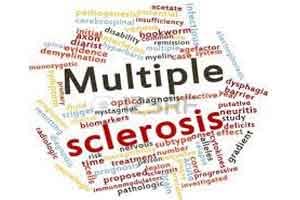- Home
- Editorial
- News
- Practice Guidelines
- Anesthesiology Guidelines
- Cancer Guidelines
- Cardiac Sciences Guidelines
- Critical Care Guidelines
- Dentistry Guidelines
- Dermatology Guidelines
- Diabetes and Endo Guidelines
- Diagnostics Guidelines
- ENT Guidelines
- Featured Practice Guidelines
- Gastroenterology Guidelines
- Geriatrics Guidelines
- Medicine Guidelines
- Nephrology Guidelines
- Neurosciences Guidelines
- Obs and Gynae Guidelines
- Ophthalmology Guidelines
- Orthopaedics Guidelines
- Paediatrics Guidelines
- Psychiatry Guidelines
- Pulmonology Guidelines
- Radiology Guidelines
- Surgery Guidelines
- Urology Guidelines
Increased body mass index linked to higher risk of Multiple Sclerosis

Some studies have suggested that people who are younger when they enter puberty are more likely to later develop multiple sclerosis (MS). But a new study attributes that link to body mass index (BMI). The study has been published in Journal Neurology.
“Previous studies have shown that children with higher body weight tend to enter puberty earlier than children with normal body weight, and increased BMI is also linked to a greater risk of MS,” said study author J. Brent Richards, MD, MSc, of McGill University in Montreal, Canada. “It appears that earlier age at puberty is associated with an increased risk of MS, but this association is influenced by BMI. Our findings do not support a substantial role for the effect of the timing of puberty on the risk of MS independent of BMI.”
For the study, researchers looked at a genome-wide association study of 329,245 women and 372 genetic variants that are strongly associated with the age when girls have their first menstrual cycle. Previous studies have shown that the genes related to the timing of puberty are well-correlated in girls and boys.
Then researchers looked at another genetic study that included 14,802 people with MS and compared them to 26,703 people who did not have the disease to examine whether the age of puberty was associated with risk of MS.
Richards said they did find that people with an earlier age of puberty were more likely to develop MS, but once they factored in BMI, the results were no longer significant.
“More research is needed to determine whether decreasing rates of obesity could help to reduce the prevalence of MS,” he said. “If so, this could be another important reason for public health initiatives to focus on lowering obesity rates.”
A limitation of the study was that researchers were not able to analyze results for men and women separately.
The study was supported by the Canadian Institutes of Health Research, the Canadian Foundation for Innovation and the Quebec Health Research Fund (FRSQ).
Learn more about multiple sclerosis at BrainandLife.org, home of the American Academy of Neurology’s free patient and caregiver magazine focused on the intersection of neurologic disease and brain health. Follow Brain & Life® on Facebook, Twitter and Instagram.

Disclaimer: This site is primarily intended for healthcare professionals. Any content/information on this website does not replace the advice of medical and/or health professionals and should not be construed as medical/diagnostic advice/endorsement or prescription. Use of this site is subject to our terms of use, privacy policy, advertisement policy. © 2020 Minerva Medical Treatment Pvt Ltd